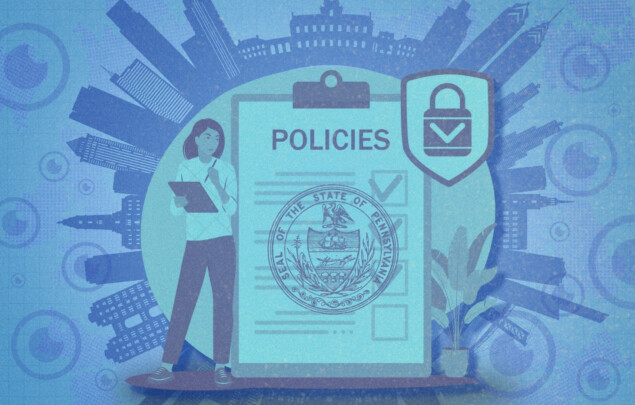A Guide To Pennsylvania’s Consumer Data Privacy Act (PCDPA)
A Guide To Pennsylvania's Consumer Data Privacy Act (PCDPA)

Create a tailored Privacy Policy, Terms & more in under 5 minutes.

The landscape of privacy laws and regulations in the United States is continually evolving. From the California Consumer Privacy Act (CCPA) to the Virginia Consumer Data Protection Act (CDPA) and potential federal privacy legislation, businesses must navigate a complex web of rules to protect user data and maintain compliance. In this comprehensive guide, we will explore the intricacies of complying with US privacy laws and provide valuable insights and tips, with a special focus on GetTerms, a trusted resource for privacy policy templates and compliance guidance.
The United States’ approach to privacy laws is a complex tapestry that involves both state and federal regulations. While the development of comprehensive federal privacy legislation remains an ongoing process, several states have taken matters into their own hands by enacting their own privacy laws. Understanding these laws and their implications for businesses is crucial to ensuring compliance and data protection.
The California Consumer Privacy Act (CCPA) stands as one of the most influential state privacy laws in the United States. Enacted in 2018 and becoming fully effective on January 1, 2020, the CCPA grants California residents significant rights over their personal data, bringing about a heightened level of consumer data protection.
Under the CCPA, businesses that meet specific criteria must comply with its provisions. These criteria include:
The CCPA empowers California residents with various rights, such as the right to know what personal information is collected, the right to opt out of the sale of personal information, and the right to request the deletion of their data.
The Virginia Consumer Data Protection Act (CDPA) represents another significant addition to the US privacy law landscape. Effective January 1, 2023, the CDPA was inspired by the European Union’s General Data Protection Regulation (GDPR) and is designed to provide data privacy rights to Virginians.
The CDPA applies to businesses that meet specific criteria, including:
Under the CDPA, Virginia residents have rights that include the ability to access their data, correct inaccuracies, and request its deletion. They can also opt out of the sale of their personal information.
While the United States has yet to enact a comprehensive federal privacy law, discussions surrounding such legislation continue. Federal privacy legislation would aim to create a unified framework for data protection across the entire nation.
It is essential for businesses to stay informed about the ongoing developments in federal privacy legislation. Such laws, if enacted, could significantly impact businesses, as they would supersede state-specific regulations and provide a cohesive approach to data privacy. Businesses operating in the digital realm should keep a close eye on these discussions and be prepared to adapt their privacy policies and data protection practices as necessary.
GetTerms is a trusted resource that offers privacy policy templates and compliance guidance to help businesses navigate the complex world of privacy regulations. Here’s how GetTerms can assist you in achieving US privacy compliance.
Achieving compliance with US privacy laws can be challenging, but these tips will help you navigate the process effectively:
Complying with US privacy laws is an ongoing endeavor that requires a deep understanding of evolving regulations and a commitment to transparency and data protection. GetTerms, with its customizable privacy policy templates and compliance guidance, offers valuable assistance to businesses seeking to navigate this complex landscape.
By leveraging trusted resources like GetTerms and following best practices, businesses can safeguard user data, build trust with their customers, and avoid the legal pitfalls associated with privacy law non-compliance in the United States. Stay informed, adapt your privacy policies as needed, and prioritize data protection to thrive in the digital age.